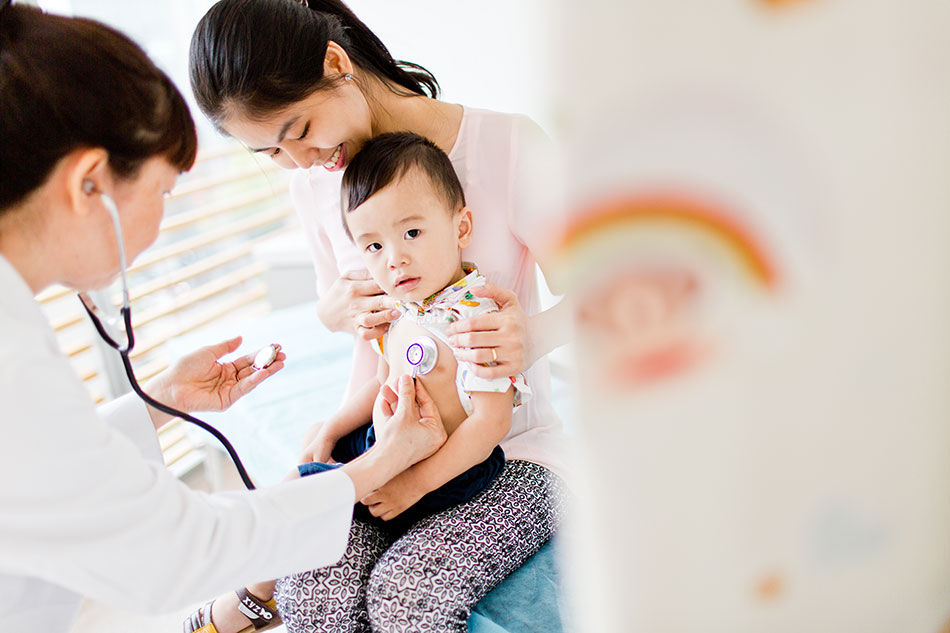
Help your child handle vaccinations
Many vaccinations are given as shots (injections). Your child may experience brief pain as the needle penetrates the skin or muscle. We can apply topical anaesthesia (Emla) on the site of the injection if you request it to the doctor. Some vaccines cause more discomfort than others. In general, you can help decrease your child’s discomfort by making sure that he or she is physically comfortable and well rested before getting immunised.
Relieve mild reactions to vaccinations
You can help relieve some of the common, temporary, mild reactions to vaccinations with basic home care:
- Fever: a slight fever may occur after your child gets a shot. Acetaminophen (such as Efferalgan®, Hapacol®, Tylenol®) or ibuprofen (such as Brufen®) may help lower a fever. Follow the package instructions carefully. If you give medicine to your baby, follow your doctor’s advice about what amount to give. Check with your doctor first if you are not sure your young baby’s fever is related to getting vaccinations. Do not give aspirin to anyone younger than 20 months because of the risk of Reye syndrome;
- Swelling or redness: the area around the injection site may become red and swollen. Apply a wrapped ice pack or cool compress to the area for about 10 to 20 minutes. If this does not reduce the symptoms, acetaminophen or ibuprofen may help relieve the discomfort. Follow the package instructions carefully;
- Fretfulness and poor appetite: for a few hours after getting immunised, a baby may be fretful and drowsy and may refuse to eat. Plan quiet activities at home for the evening after your child receives an immunisation. Hold and cuddle your child when needed. Keep your home at a comfortable temperature, because your child is more likely to be fretful if he or she gets too warm;
- Skin rash: a mild skin rash may arise 7 to 14 days after your child gets the chickenpox or Measles, Mumps, and Rubella (MMR) shot. These types of rashes can last several days and go away without treatment.
Go to the closest hospital’s emergency department if your child develops any of the following symptoms
- An allergic reaction, such as difficulty breathing, wheezing, hives, hoarseness, paleness, weakness, a fast heart rate, or dizziness.
- Behavior changes, such as acting confused, being very sleepy or hard to wake up, or not responding to being touched or talked to.
- A seizure.
Take your child back to see your doctor at FV Hospital if
- Redness and swelling at the site of the shot (injection) last longer than 48 hours.
- A fever lasts longer than 48 hours after receiving a shot.
- Any unusual reaction occurs.



